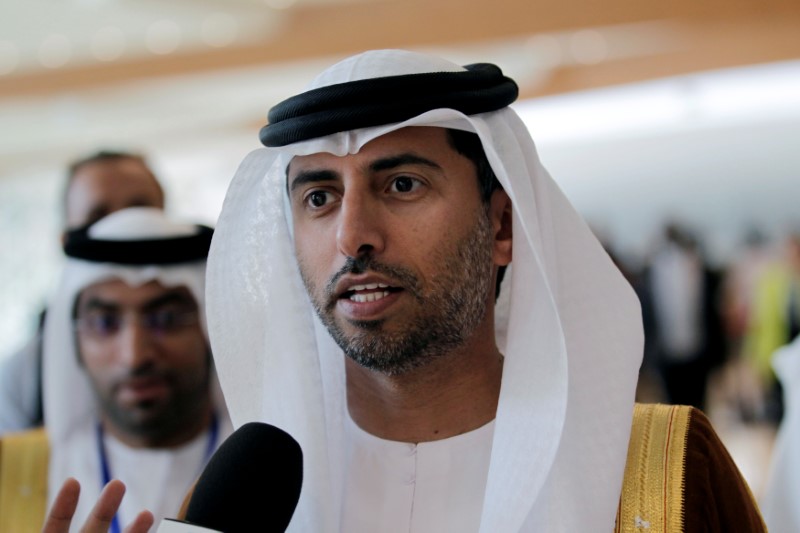By Alex Lawler
NEW DELHI (Reuters) - A majority of the OPEC and independent oil producers participating in a current deal to cut supply like the idea of a long-term producers' alliance, the energy minister of the United Arab Emirates said on Thursday.
The Organization of the Petroleum Exporting Countries (OPEC), Russia and several other non-OPEC producers began to cut supply in January 2017 in an effort to erase a global glut of crude that had built up since 2014.
OPEC and its partners, 24 countries in all, have extended the pact until the end of 2018 and are considering a deal to prolong their alliance for years or even decades.
"I think the idea itself is liked by, if not all, the majority of the countries," said Suhail al-Mazroui on the sidelines of the International Energy Forum. The UAE holds the OPEC presidency in 2018.
"The ultimate target is to have this group working together for way longer than those two years than we've been working together."
The talks have raised the prospect that producers could extend tangible actions to prop up oil prices through supply cuts - or moderate them by pumping more - beyond this year's expiry of the supply cut agreement.
Mazroui told Reuters on Wednesday producers were trying to work out details of the agreement and indicated that it may not include a provision on cutting or increasing oil output.
Asked on Thursday about the objective of the alliance, the minister said the aim was to build on progress made since the deal began on sharing information and building trust.
"The objective is to have this group of responsible producers communicating, looking at the market together," he said, adding that over the past two years that stronger communication has helped to bridge misunderstandings among the various producing countries.

"I think the level of trust has increased significantly among us. We call each other, the ministers, and the technical people and commercial people in those countries, they are in direct communication."